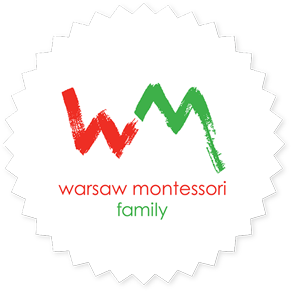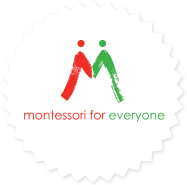“Help Me to Help Myself”: Independence and the Montessori Philosophy
Maria Montessori had an innovative perspective regarding education. She did not look at a set of skills or a body of knowledge. Instead she focused on the development of the whole person over the course of gaining maturity:
“Montessori saw education as a means whereby children might develop their personalities so as to eventually achieve a mature and independent adulthood.”
(Maria Montessori, Education for Human Development)
Isn’t that what each of us wants? For our child to become an adult who can make good decisions, who feels confident and knows herself? Who can both accept her reality and work to make the world a better place? The fundamental foundation for this independence is laid at the beginning of a child’s life.
An aid to life.
Maria Montessori noted that while animals are driven by instincts, bound by them to certain behaviors, human beings must create a self or personality as they mature. Through observation, she identified “guiding instincts” that incite the human to develop.
To help the child reach her full potential, we try to understand these inner drives and offer the best guidance and environment in which that foundation of the personality can be formed. Only the child can achieve self-construction. Adults have the responsibility to assist her. We study to understand the stages of growth and we prepare ourselves and the environment to foster her best development. Then we let go—it is the child who strives to be independent to grow and to learn. It is her process. While we may believe we are “helping” the child, in fact, any time the adult offers assistance or interrupts, she becomes an impediment to the child’s growth.
Montessori observed children and found they had drastically different characteristics at different ages. From birth to age three, the child takes in her world while unconscious of the process. She is a sensorial learner; unable to use logic or reasoning to process these experiences. Her absorbent mind allows her to adapt to her environment. The Inuit child becomes an Inuit; the Taiwanese child a Taiwanese. The environment becomes her, in a sense. To help her develop to her greatest potential, we must allow this child access to her world. We can only indirectly influence this very young child. From ages three to six years, she is still absorbent and still forming that foundation of her personality, but becomes more conscious about choices. The adult can more directly affect this child and directly influence her development.
Initially, the infant bonds with her mother, then with her family. This healthy emotional attachment will allow her reach out into the world successfully…
read the whole article here: https://montessoriguide.org/help-me-to-help-myself/
“Help Me to Help Myself”: Independence and the Montessori Philosophy
by Jennifer Shields
MontessoriGuide.org



